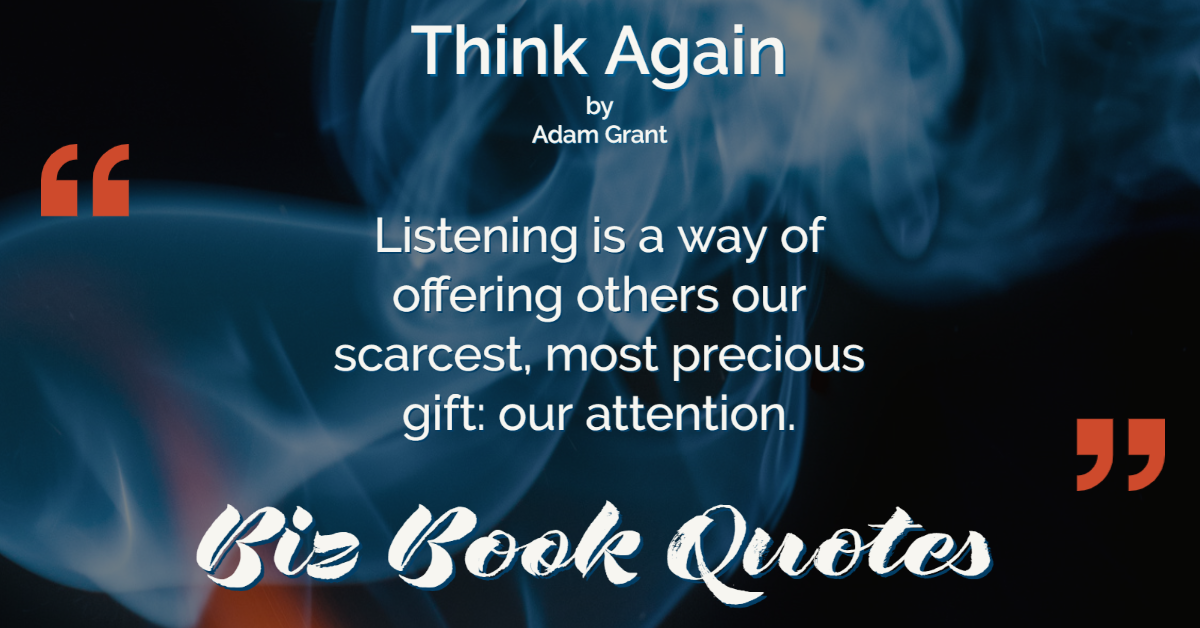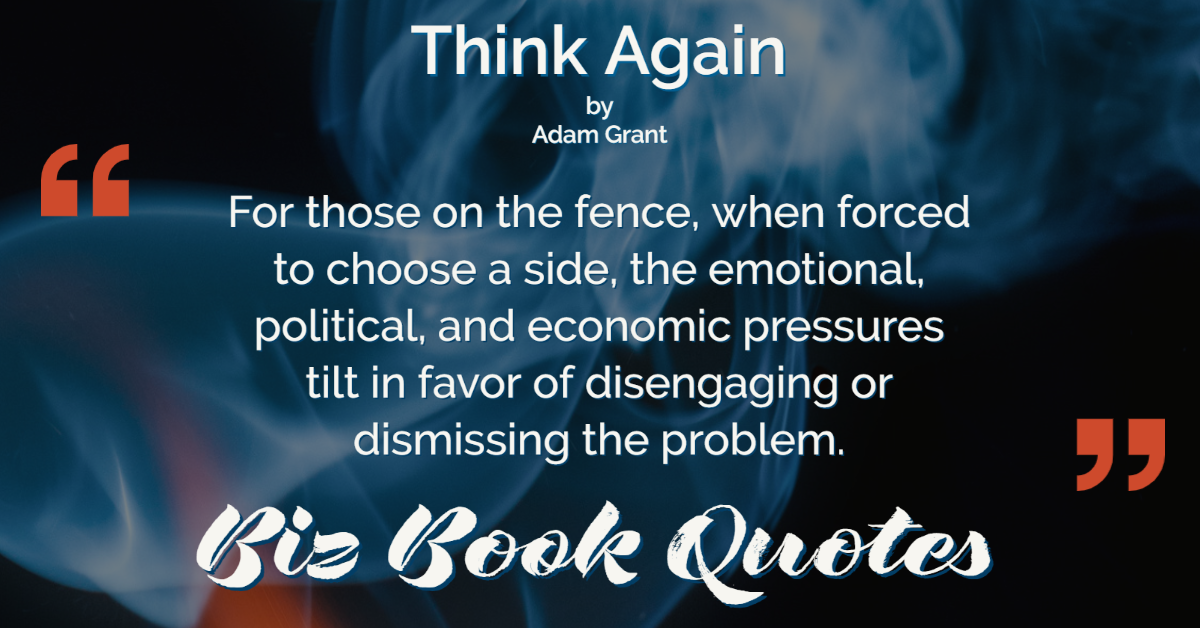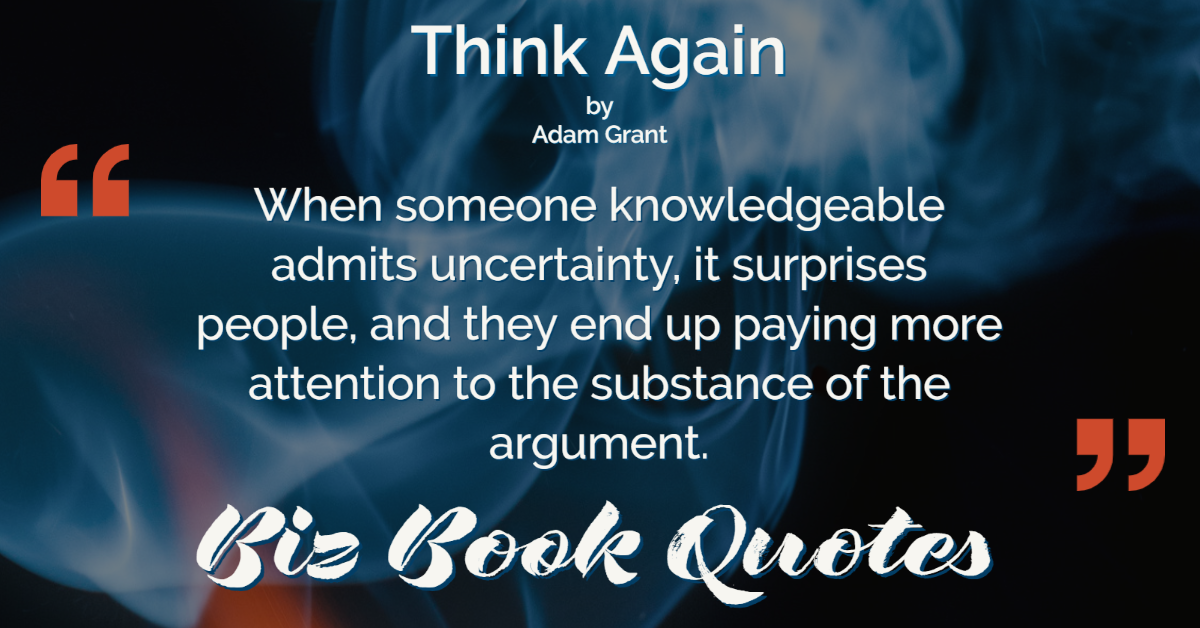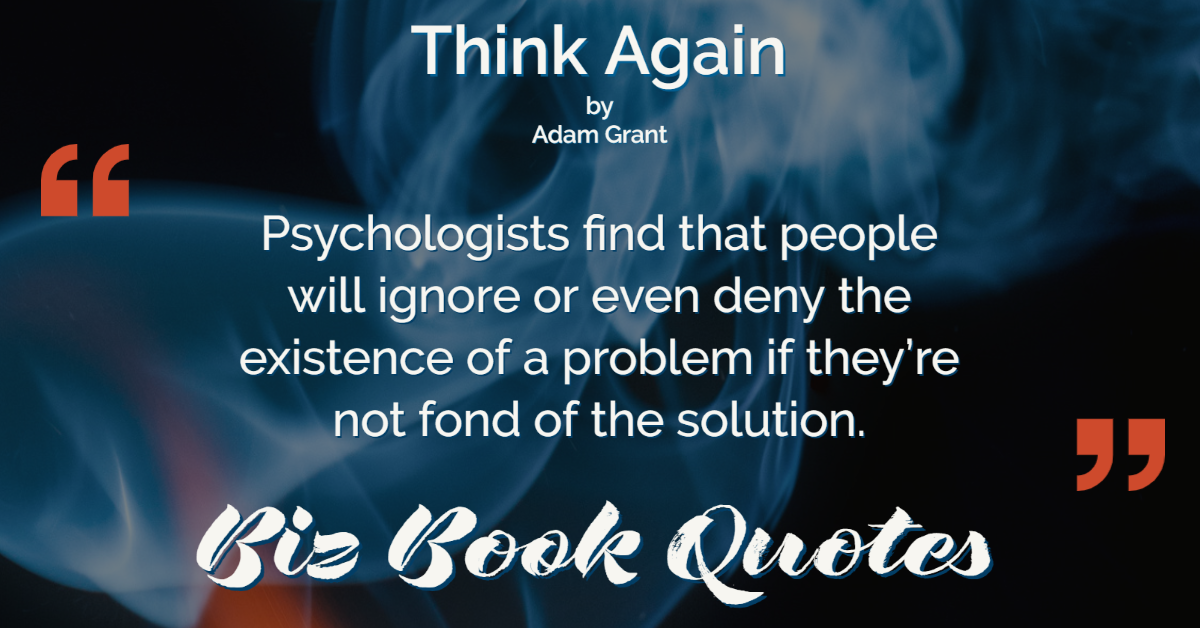|

|
Think Again:
Listening is a way of offering others our scarcest, most precious gift: our attention.
|
159 |
|

|
Think Again:
…where complicated issues are concerned, seeing the opinions of the other side is not enough. Social media platforms have exposed us to them, but they haven’t changed our minds.
|
164 |
|

|
Think Again:
Presenting two extremes isn’t the solution; it’s part of the polarization problem.
|
165 |
|

|
Think Again:
For those on the fence, when forced to choose a side, the emotional, political, and economic pressures tilt in favor of disengaging or dismissing the problem.
|
169 |
|

|
Think Again:
When someone knowledgeable admits uncertainty, it surprises people, and they end up paying more attention to the substance of the argument.
|
171 |
|

|
Think Again:
Psychologists find that people will ignore or even deny the existence of a problem if they’re not fond of the solution.
|
173 |
|

|
Think Again:
…asking ‘how’ tends to reduce polarization, setting the stage for more constructive conversations about action.
|
173 |
|

|
Think Again:
New research reveals that people are more likely to promote diversity and inclusion when the message is more nuanced (and more accurate): ‘Diversity is good, but it isn’t easy.’
|
174 |
|

|
Think Again:
The greater the distance between us and an adversary, the more likely we are to oversimplify their actual motives and invent explanations that stray far from their reality.
|
178 |
|

|
Think Again:
In a productive conversation, people treat their feelings as a rough draft. Like art, emotions are works in progress. It rarely serves us well to frame our first sketch.
|
180 |











